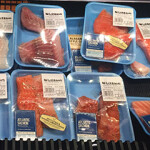Japan’s “hometown tax” scheme helping scallop producers hit by China’s ban

Japan’s furusato nozei – the country’s hometown tax program – is coming to the aid of scallop producers hit hard by China’s ban on Japanese seafood.
Under the program, a taxpayer who designates a portion of their taxes toward an area in which they don’t live can receive a gift valued at around 30 percent of the tax amount. The program aims to promote local products, and seafood has proven to be a popular item many participants choose to receive as a gift. Many Japanese citizens have used the program as an opportunity to splurge on luxury food products they would not normally buy, such as crab, sea urchin roe, caviar, or oysters, and to stock up on more popular seafood products like scallops.
Total donations in fiscal-year 2022, which ended March of 2023, amounted to JPY 965.4 billion (USD 6.5 billion, EUR 6.1 billion), and – as promised – about 30 percent of that amount came back to donors as return gifts, much of it comprising seafood.
The success of the program has been lending a helping hand to Japanese seafood producers that are facing an import ban in China and other countries in response to the controversial release of treated cooling water from the Fukushima Daiichi nuclear reactor.
The water release plan received approval from the International Atomic Energy Agency (IAEA), and Japan has protested China’s ban to the World Trade Organization (WTO) on that basis. Additionally, Japan made a request to initiate discussions on emergency measures based on the Regional Comprehensive Economic Partnership Agreement, of which both Japan and China are members.
However, such appeals may take years to resolve, and in the meantime, the ban, which has created a supply glut and a price crash for several seafood products, has left Japan’s exporters in the lurch. Following China’s announcement of its ban, the average price of scallops fell from JPY 195 (USD 1.32, EUR 1.23) per kilogram in July to JPY 173 (USD 1.18, EUR 1.10) in August.
Scallop producers in Hokkaido, looking to find more domestic consumers, have turned to avenues like the hometown tax program to ...
Photo by Chris Chase/SeafoodSource




Share